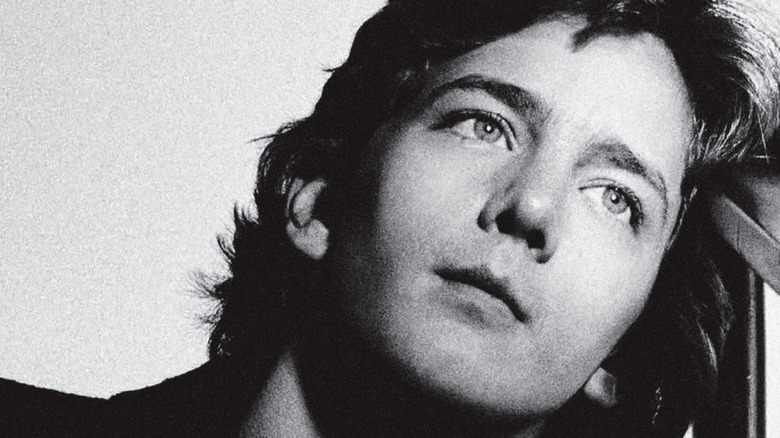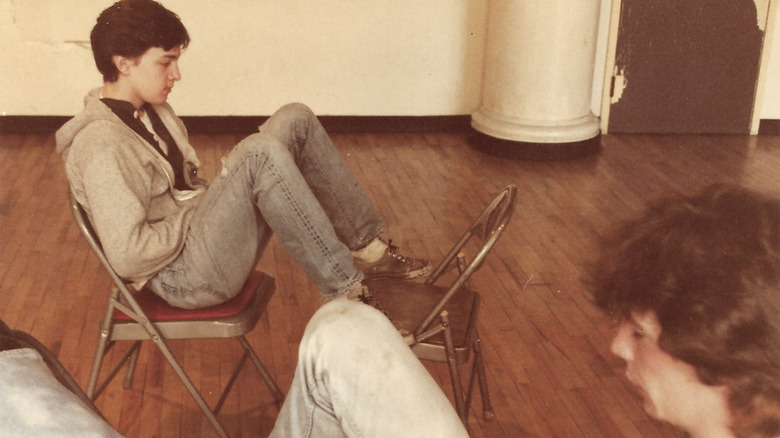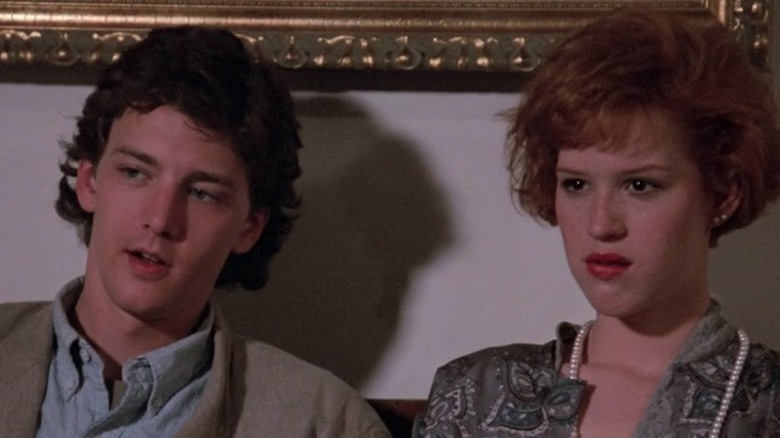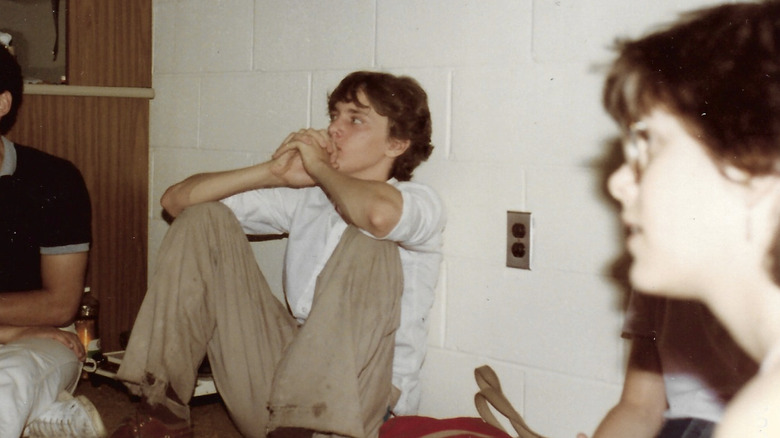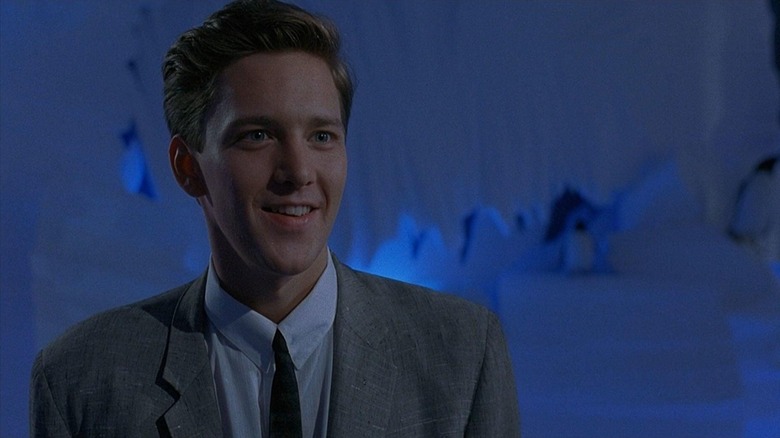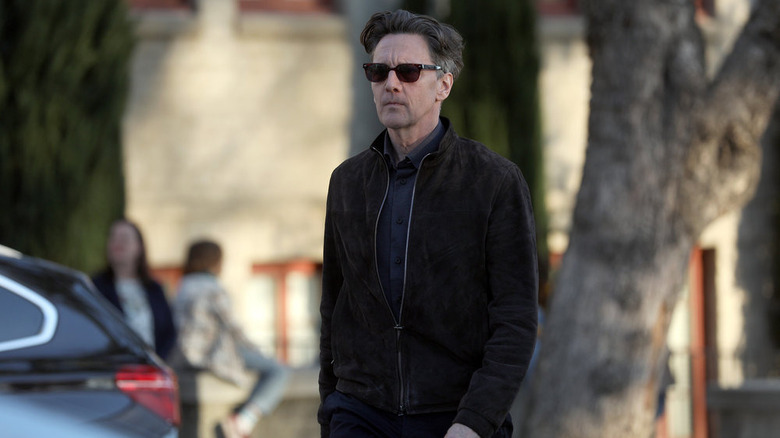Andrew McCarthy On His Book Brat: An '80s Story, Pretty In Pink, And '80s Nostalgia [Interview]
If you're a child of the '80s (or a fan of films from that decade), you're probably already a huge fan of Andrew McCarthy. He was part of the Brat Pack, the star of "Pretty In Pink," "St. Elmo's Fire," "Mannequin," "Weekend at Bernie's," "Heaven Help Us," "Fresh Horses," and "Less Than Zero," which turns 35 this year. He's also appeared in "Good Girls," and will have a recurring role in "The Resident," and you've likely seen his directing work in "Orange is the New Black," "Good Girls," and "The Blacklist."
McCarthy is also a writer, serving as an editor-at-large at National Geographic Traveler, with award-winning travel writing in The New York Times, Wall Street Journal, Los Angeles Times, The Atlantic, and Time. He's written two New York Times best sellers, the travel memoir "The Longest Way Home," and the young adult novel "Just Fly Away."
McCarthy's newest book, "Brat: An '80s Story," is out today on paperback, and to mark the occasion, I spoke with him about the term "The Brat Pack," revealing his struggles with alcohol and family, the changed ending of "Pretty In Pink" (and if modern audiences would feel the same), what method acting really means, and moving from acting to directing to writing and back again.
This interview has been edited for clarity and brevity.
Becoming the Brat Pack
I absolutely love the book, and I'd love to hear your thoughts on the reaction you've gotten since it came out in hardcover.
Thank you, first of all. The reaction has been lovely. It's been generally really gracious and generous and lovely. People are like, "Wow, it's very revealing," and whatever. So I think people have been very kind. And yeah, it's been nice.
The origin of the title Brat Pack really surprised me, because as someone who was a kid in the '80s, it felt like just something older people called the actors my friends and I loved. But can you talk a little about how that came about?
Yeah, it all came from a night a journalist was out with Emilio Estevez and Judd Nelson and Rob Lowe. They were in a bar and he just took a dislike, I suppose, to his subject. You have to keep in mind the time. It was the mid-'80s for New York Magazine. In New York Magazine, the mid-'80s, it had a certain kind of attitude of snark. And it was ... the order of the day. And so the article just came out — it was quite scathing — it was supposed to be just a little profile on Emilio, and he turned it into a whole big feature about this gang and dubbed it the Brat Pack, which is kind of a fantastic name, which was really super clever. And then it just stuck.
It's one of those things. I was talking to someone the other day — we were talking about social media and how everything happens, but there was no social media [back then], and instantly that name branding stuck and was indelible, and just from one simple article. When it first came out, I suppose in the media it was a very negative, pejorative term, but I think the public very quickly took it to mean this cool group of insiders. And so there was a disconnect between the public perception, I think, in many ways, and in the media and/or movie industry — perception of what it meant.
Justice for Duckie?
There have been a lot of things written about the changed ending of "Pretty In Pink." [The original ending had Andie, played by Molly Ringwald, ending up with Duckie, played by Jon Cryer, instead of Blane, played by McCarthy, but was changed after test audiences didn't like how it turned out.] You wrote about it in the book. Do you think people would have had a different reaction to that at test screenings today?
Hmm. I have no idea. Maybe so, but it's sort of like, with the movies, you have to give Molly what she wanted. The movie's about Molly getting what she wanted. That's what she wanted, you know what I mean? [laughs] So maybe they would — maybe they'd go, "Oh it's more ... whatever," with today's culture, but really, people still want what they want, and that's what she wanted. [laughs] And so they did a test screening and they loved the movie until Molly didn't get what she wanted. Then they hated the movie. Because everybody wanted to be like, "We're rooting for her to get what she wants. She doesn't get what she wants. Well, I hate this." We all want what we want, whether it's good for us or not. So that's what she wanted. So that's what they gave her.
That totally makes sense. What do you think it was about John Hughes that had such an impact on teens at the time, because I was one, and it had an impact on me.
People have talked about it and I think it's all true, that John just took young people seriously, and had respect for them and knew that going to that dance was really important, and not something for some 30-year-old to scoff at. "It's fine. You'll get over it." No, it mattered. He understood that the emotional life that they — he understood and honored young peoples' emotional life and whatever the details that were causing the emotions didn't really matter. It was honoring their experience. And he did that.
I think I mentioned in the book — I talked about when John would bring on music that would become the soundtrack. He would play us little bits of it and he would take the input from us. It wasn't just lip service. He actually did respect young people, and what they thought. "Why do you think that? Oh, okay, cool." So he was able to simply just honor that in a way that other people maybe hadn't. Or they just hadn't looked at it as something real.
On addiction and family issues
You get really honest about addiction issues and your family history. Was that a difficult thing to do?
Well, the drinking – luckily it's long enough in my past that it's not like a hot button issue for me. It's just simply a part of the story of that time. The writing about that time, if I'm to write about it, three things were going on. There was making movies, there was my drinking, and my relationship with my father. And to write about any two of them and not have the third would be like a sort of two-legged stool that would fall down. You know what I mean?
The first draft I wrote had all the movie stuff, or lots of it, less drinking and hardly any of my father. And then I realized that, as I was going back, that these are facets of the puzzle that have to be put in for it to become clear. And if you're writing about this in a memoir in this way, you want to be as truthful as possible because you're asking people to invest their time. You have to give them — [laughs] it wasn't just some tell-all story book. It was about my internal life at that time. You know, and those are the three internal things were going on. So it wasn't particularly painful writing about the alcohol in any way because like I said, it'd been decades. And so it is what happened.
With my dad, it was — that had also gotten sort of clarified more recently. He died several years ago. So we sort of came to peace before he died. It certainly clarified a bit for me how they were all intertwined, like braiding of hair. Like they were all three strands of the braid and they all were interwoven, and they weren't separate issues and could never be separated. And they didn't call — like I drank because I drank. I didn't drink because I was successful in movies. Nothing in Hollywood caused me to drink. I just happened to be drinking. I happened to get better vodka 'cause I was making movies for money. [laughs] You know, and my dad happened to be doing whatever was going on with our relationship. So it was all just interwoven ... if you're going to tell that story, you have to tell the whole story.
From in front of the camera to behind it
In the book, you talk about how, in a way, feeling uncomfortable in front of the camera occasionally was a catalyst for you learning about the camera and later becoming a director. Do you look at that time in your life differently now that you've become such a successful director?
How clueless I was! [laughs] Writing the book certainly made me have a lot more affection for myself as a young person. I don't think I ever looked back on that time with any affection for myself until I wrote the book. I had a very limited set of skills and knowledge that I was dealing with and operating with. To realize that in a very clear way and in very eyes wide open way was revealing to me. I was like, "Wow, I really didn't..."
With the tools I had in my little chest at that point, fine. So it made me have a lot more compassion for myself and for young actors in general, or young people in general. We know what we know when we know it, and I knew so little. And so you realize, so many young people ... I think when we're young, we just think we know everything. And so it's helped me to have a little more compassion, I think, toward myself and toward my own kids when they're struggling with things, and other young people in general — or it's hopefully just people. We're all just stumbling along.
There's been so much discussion just in the past few weeks about method acting. Since you talk about it in the book, I'd love to hear your thoughts on method acting...
In the last few weeks? I've missed that.
Just a couple of movies that have come out ... say, "Morbius," where people are taking it outside of acting and sort of never letting the character go.
Well, I don't know that that's what method acting is, I think there's a great misunderstanding about what method acting actually is, you know. You're not a method actor because you drive a taxi cab when you're playing a taxi cab driver. It's good solid preparation. And that's great. And I'm all for it, and I would do the same, but it's not really method acting. There's a great misunderstanding of what method acting is. And it's used very pejoratively now. So often [you hear] "Oh, method, oh, that means some actor's gonna throw stuff against the wall," which has nothing to do with method acting. You know, staying in character 24/7 is not method acting. It's more literal acting than anything else, and it's very effective and has its place. It's wonderful, but it has nothing to do with method acting. So I mean, I just think that that has become sort of a kind of a joke term in many ways, and a pejorative term. It's a misunderstanding of what it is.
Writing, and getting back in front of the camera
I love that you work as a travel writer, and that this is not your first book. You talk in the book about that moment, seeing a stack of magazines that you've written for on your desk and what that meant to you. What does it mean to you, adding another book to that stack?
I don't know. Well, hopefully you're getting somewhere when you stop really caring. [laughs] You know what I mean? For a while it really mattered, those magazines that had my articles, but now I don't think I have them anymore. [laughs] You know, I suppose I always had a date with this book. People had asked me if I was interested in writing this kind of book for a long time, and I'd always said "no" very quickly. And then someone mentioned it again and I said, "Huh, I don't know. Maybe." And that gave me pause, that my immediate knee jerk reaction was not a quick "no."
So I suppose I knew I'd always had a date to write this book and I'm glad I didn't write it a minute before I did, because I wouldn't have been as available to myself or frankly as truthful with myself about it. When I first wrote the book, I gave it to a friend to read and I didn't have a title. He said, "What's the title?" And I said, "I don't know." He said, "There's only one title for this book, and it's called 'Brat,'" and I went, "F*** you. This book will never be called 'Brat.'" [laughs]
And I realized in that minute that I had not done my work and I had to go back in and look at the whole last third. The book is completely different because of that. And I don't think I would've been able to acknowledge that at until the minute I did. It took me a long time. You know, I just recently read an interview with Al Pacino who said, "It's taken me 50 years to get over 'The Godfather.'" And, I was like, "So if it took Al Pacino 50 years then I'm fine. Thirty-five years for the Brat Pack." So that's more the answer to that. I'm glad I didn't write it however many years ago.
I'd love to hear your thoughts on having a recurring role in "The Resident."
[laughs] "I'm not a doctor, but I play one on TV." That's probably before your time. It used to be a commercial.
No, I remember!
Anyway, it's fun to act again. I hadn't acted really in years and years. I've been directing for like 10, 15 years. I haven't really acted much. Just popping up on a few shows that I direct on and stuff. But it was really nice to just go and have no responsibility other than "Where do you want me? I'll stand there. Okay, great." [laughs] Acting to me is a bit like breathing. I haven't done it for so long, and to just go back to it was very kind of liberating and refreshing.
"Brat: An '80s Story" is available in paperback now.
